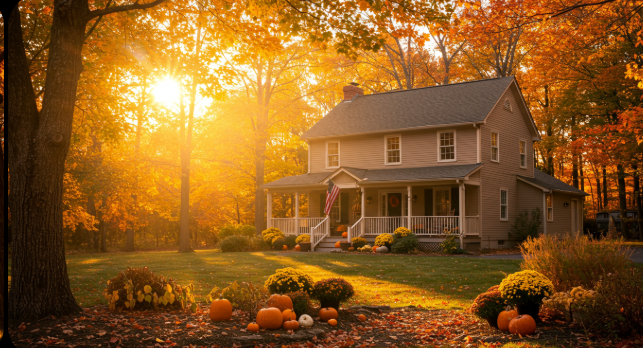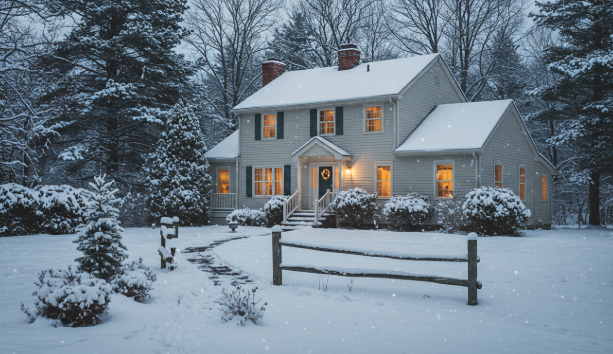Fall Cleanup, and Getting Ready for the Winter.

Fall cleanup refers to the process of tidying up your yard and garden at the end of the growing season, typically in autumn. This includes tasks such as raking leaves, removing dead plants, trimming shrubs, cleaning gutters, and preparing the soil for winter.
The importance of fall cleanup includes:
- Prevents Disease and Pests: Removing dead leaves and plant debris reduces the risk of diseases and pests that can overwinter and affect plants in the spring.
- Improves Lawn Health: Cleaning up helps maintain a healthy lawn by preventing mold and fungus growth under piles of leaves.
- Protects Plants: Pruning and removing dead plant material helps plants conserve energy and promotes healthy growth in the next season.
- Prepares Soil: Clearing debris and adding compost or mulch enriches the soil, protecting it from erosion and nutrient loss during winter.
- Enhances Aesthetic Appeal: A tidy yard improves the overall appearance of your property during the off-season.
Overall, fall cleanup is essential for maintaining a healthy, attractive landscape and ensuring a good start for your garden in the spring.
As the temperatures drop and winter approaches, preparing your home is essential to ensure comfort, safety, and energy efficiency. Taking proactive steps in the fall can help you avoid costly repairs and keep your home cozy throughout the cold months.
Reasons to Prepare Your Home for Winter:

- Energy Efficiency: Proper insulation and sealing prevent heat loss, reducing heating bills.
- Prevent Damage: Protect your home from issues like frozen pipes, roof damage, and drafts.
- Safety: Ensure heating systems and smoke detectors are functioning to avoid hazards.
- Comfort: A well-prepared home maintains a warm and inviting environment.
- Cost Savings: Preventative maintenance can save money by avoiding emergency repairs.
Steps to Prepare Your Home for Winter:

- Inspect and Clean Gutters: Remove leaves and debris to prevent ice dams and water damage.
- Check the Roof: Look for damaged or missing shingles and repair them to avoid leaks.
- Seal Windows and Doors: Use weatherstripping or caulk to block drafts and improve insulation.
- Service Heating Systems: Have your furnace or boiler inspected and cleaned by a professional.
- Insulate Pipes: Wrap exposed pipes to prevent freezing and bursting.
- Clean Chimneys and Fireplaces: Ensure they are free of obstructions and safe to use.
- Test Smoke and Carbon Monoxide Detectors: Replace batteries and verify functionality.
- Prepare Outdoor Faucets and Sprinklers: Drain and disconnect hoses to prevent freezing damage.
- Check Insulation: Add insulation in attics, basements, and crawl spaces if needed.
- Stock Up on Winter Supplies: Have essentials like salt, shovels, and emergency kits ready.
By following these steps, you can ensure your home is ready to face the winter months comfortably and safely.
Here are some great sources for free information on winterizing your home:
- Government Websites
- Energy.gov: Offers comprehensive guides on home insulation, sealing leaks, and energy saving.
- EPA.gov: Provides tips on improving home energy efficiency.
- Nonprofit Organizations
- The U.S. Department of Energy’s Weatherization Assistance Program (WAP) website offers free resources and sometimes assistance programs.
- Local community organizations often have workshops or pamphlets on winterizing homes.
- Home Improvement Websites
- DIY Network and This Old House have detailed articles and videos on winterizing.
- Family Handyman offers step-by-step guides.
- Public Libraries
- Many libraries provide free access to books and magazines on home maintenance and energy efficiency.
- YouTube Channels
- Channels like Home Repair Tutor, HouseImprovements, and DIY Creators offer practical tutorials on winterizing.
- Local Utility Companies
- Some utility companies provide free energy audits and tips on their websites or via customer service.
- Forums and Community Groups
- Websites like Reddit (r/HomeImprovement) and specialized Facebook groups can provide advice and personal experiences.
Using these resources, you can find detailed, reliable, and free information on how to prepare your home for winter.

Leave a Reply